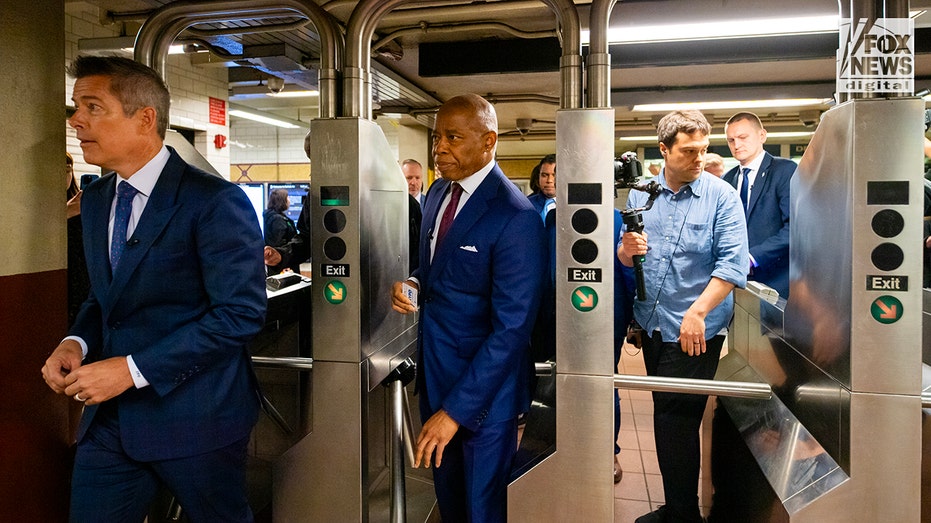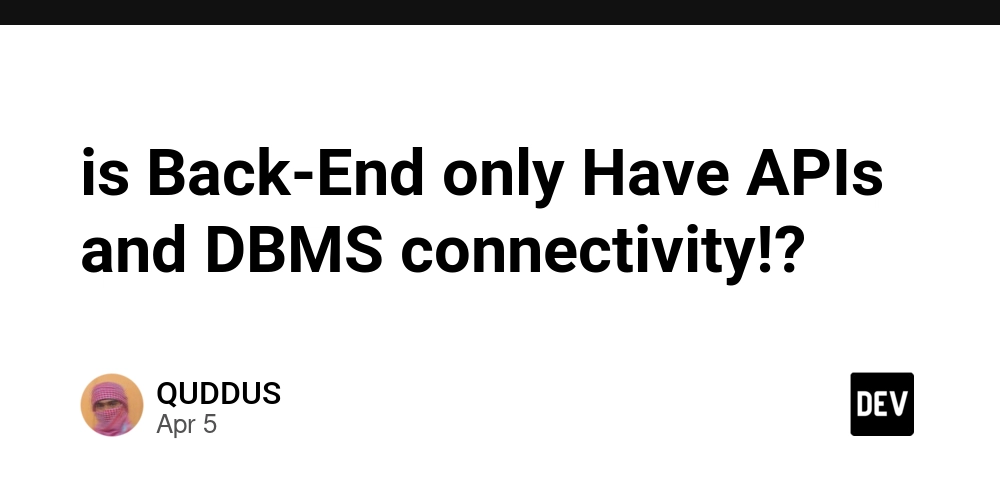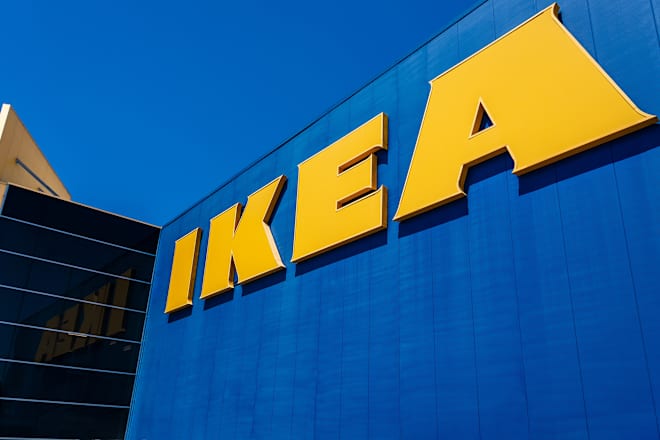Trump gambles on tariffs as nation braces for economic fallout
President Trump took his biggest gamble yet on the economy Wednesday when he pressed forward with sweeping tariffs on imports from nearly every country in the world. But in fulfilling a key campaign promise, he also ignored warnings that targeting key trading partners – from the likes of China, Japan and the European Union –...

President Trump took his biggest gamble yet on the economy Wednesday when he pressed forward with sweeping tariffs on imports from nearly every country in the world.
But in fulfilling a key campaign promise, he also ignored warnings that targeting key trading partners – from the likes of China, Japan and the European Union – will raise prices at home and risk the eruption of a global trade war.
The tariffs also stand to inject a fresh round of uncertainty in the stock market and a slew of industries, from auto parts to steel and groceries, leaving Americans bracing for higher prices and some economists concerned about the risk of a recession.
Other financial analysts also suggested Wednesday that Trump’s three major goals in imposing the tariffs – bringing more manufacturing to the U.S., increasing U.S. revenue, and negotiating lower tariffs with foreign countries – could all potentially work against each other.
While Trump doubled down on his plan for reciprocal tariffs, the stock market experienced major sinks over the last several weeks.
Despite the rattled markets, the president expressed confidence that tariffs are the route to making America wealthy again, which he has pitched since his time on the campaign trail as part of his “America first” agenda.
“We truly can be very wealthy, we can be even wealthier than any other country. It’s not even believable,” Trump said from the Rose Garden on Wednesday. “We take care of countries all over the world… we have to take care of our people and we’re going to take care of our people first.”
Trump imposed a 10 percent tariff that will go into effect on Friday on a plethora of countries but outside of those, about 60 countries will face a higher reciprocal tariff, which will go into effect on April 9 at 12:01 a.m. The president also announced a 25 percent tariff on all foreign-made automobiles that will take effect at 12:01 a.m. April 3.
The president also targeted some of the U.S.’s closest trading partners, including Canada for its tariffs on dairy products imported to the U.S., the European Union for its ban on most American poultry, Australia for its ban on American beef, and the 700 percent tariff on rice from Japan.
“In many cases, the friend is worse than the foe in terms of trade,” Trump said.
The business community, lawmakers and economics quickly hit back on the president’s announcement.
Among other high tariffs imposed were 20 percent on the European Union, 46 percent on Vietnam, 32 percent on Taiwan, 24 percent on Japan, 26 percent on India, 21 percent on Switzerland, 32 percent on Indonesia, 24 percent on Malaysia, 49 percent on Cambodia and 10 percent on the United Kingdom.
Trump appeared to punish China the worst by imposing a total 34 percent tariff that White House officials said would be on top of a previously implemented 20 percent for a total 54 percent tariff on goods.
The exact formula used to determine the tariffs was not immediately clear. Officials said they took tariffs on U.S. goods, plus non-trade barriers like currency manipulation, and cut it in half to get the final tariff.
The U.S. Chamber of Commerce, the top pro-business lobbying group, opposed the announcement, urging the administration to instead focus on tax policy and deregulation.
“What we have heard from businesses of all sizes, across all industries, from around the country is that these broad tariffs are a tax increase that will raise prices for American consumers and hurt the economy,” Neil Bradley, the Chamber’s executive vice president said in a statement.
Other industry groups also hit back, including the National Retail Federation, arguing “more tariffs equal more anxiety and uncertainty for American businesses and consumers.” The National Restaurant Association argued“tariffs will hike food and packaging costs and add uncertainty to managing availability, while pushing prices up for consumers.”
Trump first introduced the idea of imposing reciprocal tariffs over a month ago, telling reporters in March that April 2 will be “a liberating day for our country.”
There were weeks of back-and-forth threats and extensions ahead of Wednesday’s announcement, which has proven most concerning to some economists who question if the tariffs will actually stay in place or are being used as a negotiating tactic with other countries.
Olivier Blanchard, professor of economics emeritus at MIT, said Trump’s unpredictable implementation of tariffs and exemptions for certain goods has created uncertainty.
“The enormous uncertainty about Trumps’s tariff policy: Are the tariffs transactional or permanent? Will they remain/increase/decrease?” he said on X. “In that environment, if I am a firm, what do I do? Build a plant in Mexico or in the US, in Vietnam or in China, etc. I do not know, and so I wait. We all wait. Investment comes down, aggregate demand falls, and the effect is a recession.”
Trump himself has been largely nonchalant about the prospect that American consumers will face consequences for his policy. He has acknowledged there may be some short-term pain because of the tariffs, and over the weekend Trump told NBC News he “couldn’t care less” if the price of cars increased as a result of his policies.
The White House on Wednesday sought to push back against fears that Trump’s tariffs would rattle the economy by pointing to his use of duties on imports during his first term.
The president and his allies have also argued factors like the stock market are just snapshots in time and not an appropriate measure of whether his policies are working. Instead, they point to companies like Apple, Hyundai and Softbank announcing investments in the United States and to the response of groups like the United Auto Workers, which voiced support for Trump’s auto tariffs.
“In the coming days there will be complaints from the globalists and the outsourcers and the special interests and the fake news,” Trump said Wednesday. “But never forget, every prediction our opponents made about trade for the last 30 years has been proven totally wrong.”
But even some Republicans have warned that Trump’s first term tariff policy was more targeted and that Wednesday’s broad announcement threatens to undo the benefits of the administration’s other policies.
Sen. Rand Paul (R-Ky.) has for days warned that tariffs amount to a tax on consumers and on Wednesday called it “a fallacy to think that it will help the country.”
Sen. Susan Collins (R-Maine) said Wednesday she would support a resolution aimed at undoing the basis for Trump’s tariffs on Canada, arguing they are detrimental to Maine’s economy.
And, Robert B. Zoellick, U.S. Trade Representative under former President George W. Bush, called Trump’s trade policy “chaotic protectionism” and also warned about the confusion of his roll outs.
“Beyond the direct impact of the tariffs themselves, the constant flip-flops create confusion, adding a cost of uncertainty that impedes planning, especially for small businesses,” said Zoellick, a member of the Foreign Policy for America’s advisory board. “What’s more the inevitable retaliation – some we’re already seeing – will hurt America's successful exporters, especially farmers and cutting-edge machinery and services industries.
Defenders of Trump’s plan included Speaker Mike Johnson (R-La.), who attended the event in the Rose Garden and said that tariffs are a way to create fairness for Americans.
“President Trump is sending a clear message with Liberation Day: America will not be exploited by unfair trade practices anymore. These tariffs restore fair and reciprocal trade and level the playing field for American workers and innovators,” the Speaker said on X.












































































